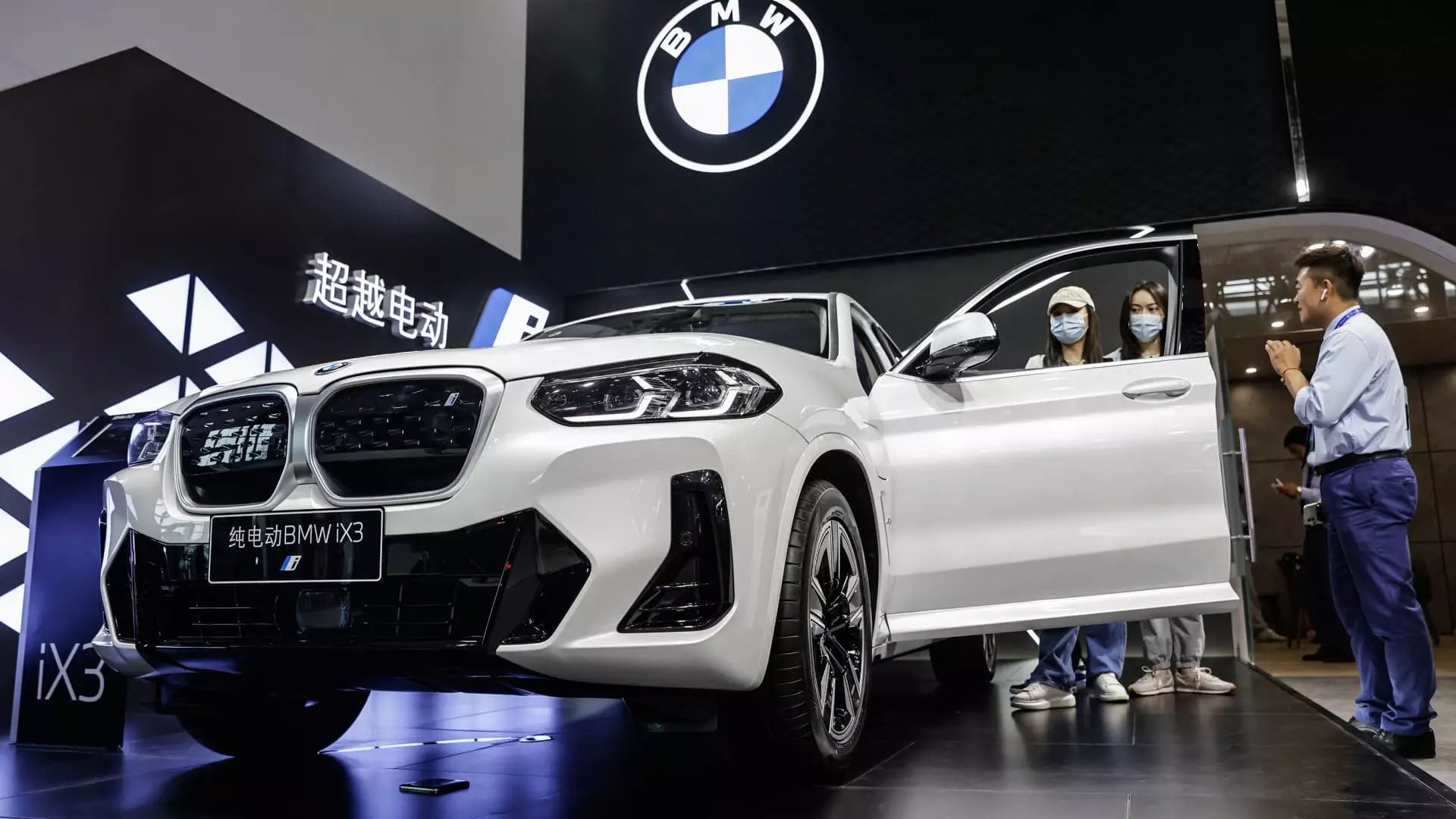In 2024, BMW’s net profits took a significant nosedive, plummeting by an alarming 36.9% to 7.68 billion euros (approximately $8.32 billion). This downturn starkly highlights the carmaker’s vulnerability to fluctuating market conditions, particularly in China, which has long been viewed as a critical growth engine for automotive manufacturers worldwide. Having fallen in line with LSEG forecasts, this decline was evident in the immediate reaction from financial markets, with shares trading down 2% early in the following day—a clear negative sentiment among investors.
The China Conundrum
The company’s struggle in the Chinese market cannot be overstated. Historically, BMW benefitted immensely from a booming demand for luxury vehicles in China; however, current reports indicate that demand remains subdued. This predicament exposes the carmaker to the harsh realities of geopolitical tensions and the impact of domestic policies on consumer behavior. A nation often characterized by rapid economic growth is now showing signs of fatigue, raising serious questions about BMW’s future in this high-stakes marketplace. As regulations tighten and consumer preferences shift, BMW’s dependence on China may become a liability rather than an asset.
Tariffs: A Double-Edged Sword
In the face of such challenges, BMW’s financial outlook remains bleak. The forecasted earnings margin for 2025 is set between 5% and 7%, down from the 6.3% achieved last year. This decline is exacerbated by various tariffs already in place, including a staggering 20% on imports from China and 25% on those from Canada and Mexico. The company openly acknowledged that these tariffs are poised to identify their profitability. CFO insights revealed that imposed tariffs could potentially shave a full percentage point from their earnings, further emphasizing the restrictive hand of protectionist policies.
The CEO’s Controversial Stance
In a recent address, BMW’s CEO Oliver Zipse elaborated on the detrimental effects of tariff imposition in our interlinked global economy. While tariffs may have served their purpose in the past, he controversially argued that they are now an outdated tool that stifles free trade and thus, competitive edge. His viewpoint resonates with a growing discourse among business leaders advocating for a reevaluation of international trade strategies in a highly interconnected world. The crux of his message implies that relying on protective tariffs is not only archaic but could prove to be detrimental as economies become increasingly interdependent.
Supply Chain Troubles and Production Woes
Adding fuel to the fire, BMW faces logistical setbacks spurred by supply chain disruptions. A faulty braking system from their supplier, Continental, led to delivery halts last year, hindering the total units delivered to just 2.45 million—down from 2.55 million in 2023. This production shortfall is not just an isolated incident but a symptom of broader systemic issues. As BMW attempts to navigate through these challenges, it becomes clear that the road ahead is fraught with obstacles that require innovative solutions, forward-thinking policies, and a willingness to adapt to the evolving landscape of global trade.
In sum, BMW’s current financial situation is not merely a result of dwindling profits; it is an amalgamation of external pressures, strategic missteps, and market dynamics that have culminated in these shocks to the company’s stability. The path forward must embrace flexibility and a departure from outdated policies if BMW hopes to reclaim its prowess in the international automotive arena.

